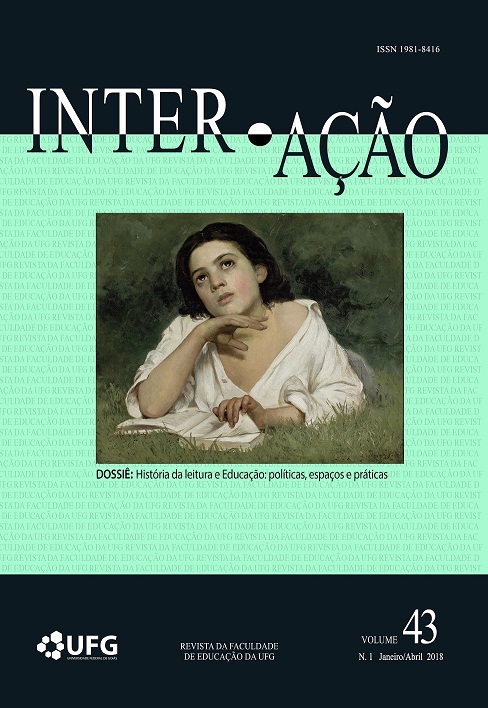O programa Nacional de Educação na Reforma Agrária (PRONERA): uma política pública para a democratização do estado no Brasil
DOI:
https://doi.org/10.5216/ia.v43i1.46105Abstract
O Programa Nacional de Educação na Reforma Agrária PRONERA é uma política pública do governo federal que tem por objetivo promover ações educativas nas regiões de Reforma Agrária a partir de cursos voltados para a realidade do meio rural através de uma gestão participativa e compartilhada. O presente artigo tem por finalidade dissertar sobre a trajetória do Programa Nacional de Educação na Reforma Agrária (PRONERA) demonstrando como sua operacionalização contribui para a democratização do Estado no Brasil pelo seu caráter participativo, característica fundacional do programa que deve ser constantemente reatualizada.
Downloads
Published
Versions
- 2026-02-02 (2)
- 2018-09-21 (1)
How to Cite
Issue
Section
License
Copyright (c) 2018 Inter Ação

This work is licensed under a Creative Commons Attribution-NonCommercial 4.0 International License.
Inter-Ação uses the Creative Commons Attribution 4.0 License for Open Access Journals (Open Archives Initiative - OAI) as the basis for the transfer of rights. Open access means making documents available on the Internet free of charge, so that users can read, download, copy, distribute, print, search, or link to the full text of documents, process them for indexing, use them as input data for software programs, or use them for any other lawful purpose, without financial, legal, or technical barriers.
Authors publishing in this journal agree to the following conditions:
1) Authors retain copyright and grant the journal the right of first publication, with the work simultaneously licensed under the Creative Commons Attribution License, which permits redistribution of the work with attribution and first publication in this journal.
2) Authors are permitted to enter into additional, separate agreements for non-exclusive distribution of the version of the work published in this journal (e.g., for publication in an institutional repository or as a book chapter), with attribution and first publication in this journal.
3) Authors are permitted and encouraged to publish and distribute their work online (e.g. in institutional repositories or on their home page) at any time before or during the editorial process, as this may generate productive changes as well as increase the impact and citation of the published work.















